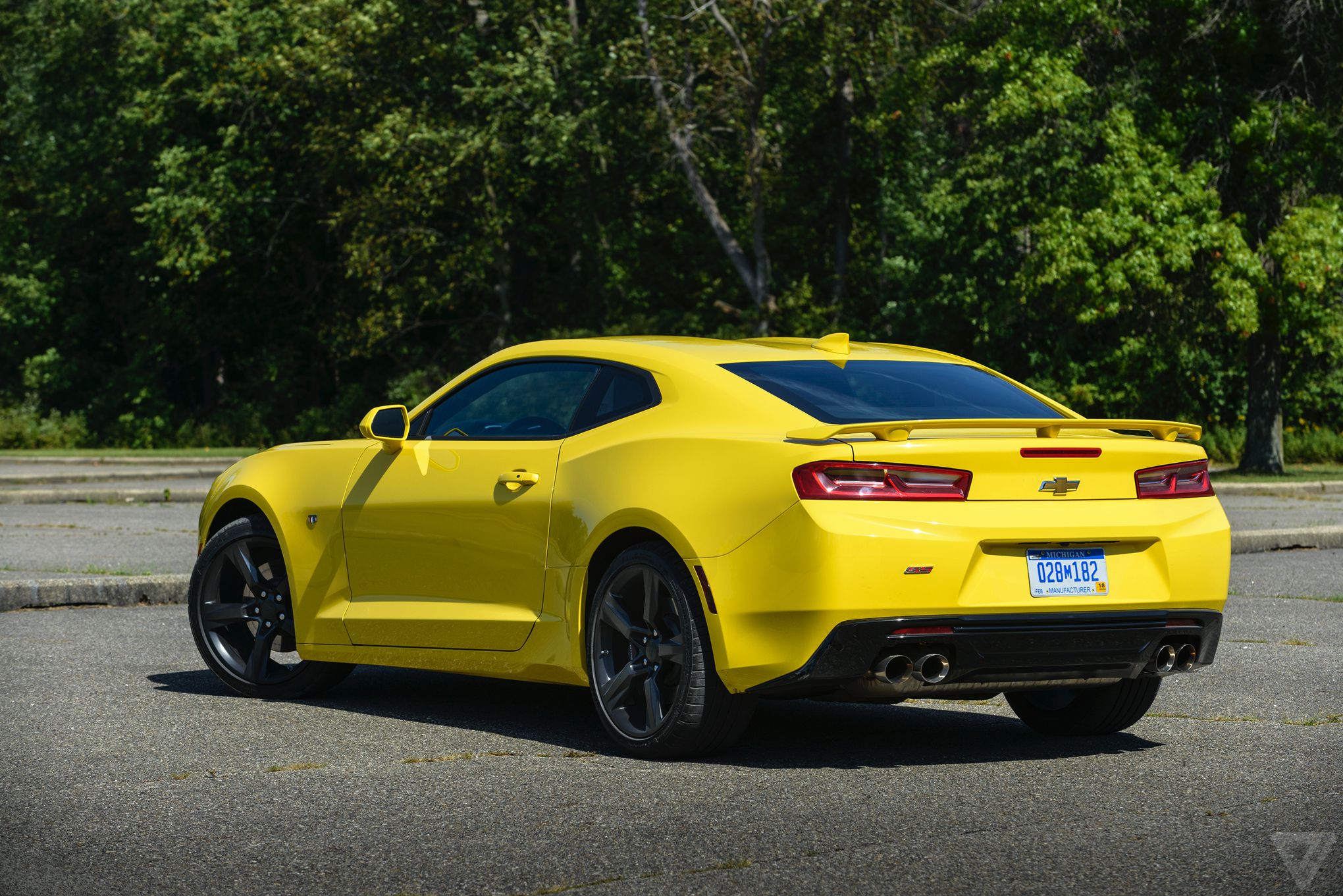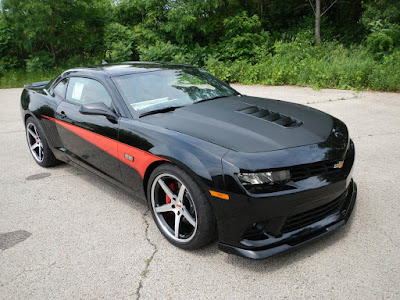Since its outstanding performance at Germany’s Nürburgring
racetrack -- the toughest road course in the world -- otherwise known as the Green Hell -- talks about just how badass the new Z/28 really is, have never slowed down.
Not only was the Z/28 amazingly fast and ran a whole four seconds faster around the Green Hell (7:37.47) than it's more powerful sibling, the ZL1, it also ran faster than the Porsche 911 Carrera S and Lamborghini Murcielago LP640.
What made this 505hp monster so quick around the Green Hell? Chevrolet engineers say it has to do with three main key factors that they put most of their focus on: increasing grip, increasing stopping performance, and reducing weight.
Recently, Chevrolet released a list of 28 improvements that made it possible for the Camaro to accomplish such impressive times:
1. LS7 engine with dry-sump oiling: features a durable forged-steel
crankshaft, lightweight titanium connecting rods and high-flow
cylinder heads with lightweight titanium intake valves, as well as
racing-style dry-sump oiling system.
2. TREMEC TR6060 six-speed
manual transmission: with short throws, smooth gear synchronization
and shift feel, the gearbox has the capability to stand up to
high-performance engines.
3. 5.1-ratio short-throw shifter: provides quicker, more
precise-feeling gear changes.
4. Track capable fuel system: he road course-ready fuel system is
designed to keep the primary fuel pump reservoir full even under hard
cornering.
5. Air intake system: the LS7 uses a unique open air box intake
system to make the most of high-rpm airflow into the engine.
6. Differential cooler: incorporates an integral heat exchanger,
eliminating the need for an external pump, wiring, relays,
temperature sensors and fan.
7. Strut tower brace: the same as on the Camaro SS 1LE, provides extra chassis stiffness by tying the towers
together.
8. Uprated lower control arm ride link “travel limiter” bushing:
offers 50-percent greater stiffness at high load than the SS.
9. Active dual-mode exhaust system and high-flow converter assembly:
engineered to provide high-flow and muscular sound character under
aggressive acceleration, while attenuating noise levels in cruising
conditions.
10. Belly pan: helps reduce front lift and contributes to drivetrain cooling.
11. Carbon ceramic brake rotors: 21.16 lbs lighter than steel brake
rotors.
12. Brembo carbon ceramic
brakes: 60-0 mph in less than 120 feet (36.6m).
13. 19-inch wheels and Perille P Zero Trofeo R tires: the
widest front wheels/tires of any comparable sports coupe: 19x11-inch
wheels with P305/30/ZR19 tires.
14. Lightweight wheels and tires: 29.1 lbs lighter wheels and tires
than on the Camaro SS.
15. Zero-preload limited-slip
differential: features a concentric helical gear set that generates
friction proportional to the input torque.
16. Higher-rate coil springs and smaller-diameter stabilizer bars: the
stiffness rate of the Z/28’s coil springs was increased by 85
percent in the front and 65 percent in the rear.
17. DSSV damper technology:
the Z/28 is the first high-volume production road car to use Dynamic
Suspensions Spool Valve damper technology from Multimatic
.
18. Uprated rear upper control arm bushing and lower trailing link
bushings: 400 percent and 25 percent stiffer, respectively, compared
with the SS.
19. Unique front fascia: although the Z/28’s fascia is based on the Camaro
SS, the fog lamps,
air dam and the upper-base grille are replaced with covers, reducing
weight.
20. Front splitter: designed to withstand 250 pounds of down-force at
its tip, it is matched with an aero closeout panel under the front of the engine compartment that also
enhances aero
characteristics.
21. Hood extractor: made of carbon fiber, it provides increased engine
cooling by allowing hot air an exit route.
22. Front wheelhouse liners: work with the vehicle underbody to make the most of airflow.
23. Performance Traction Management: integrates the chassis mode
selection, Traction Control and Active Handling Systems.
24. Rear spoiler with wickerbill:
to meet down-force requirements for the Z/28, the spoiler was
modified with a wickerbill--a
small, vertical tab at the edge of the spoiler.
25. Thinner rear window glass: Chevrolet saved 400 grams by reducing
the thickness of the rear window glass from 3.5 mm to 3.2 mm.
26. Lightweight rear seat: 10.3 lbs lighter due to reduced seat foam
and a fixed seatback design.
27. Rocker moldings and wheel flare moldings: help increase the car’s
down-force.
28. No air conditioning: 28.4 lbs were saved.









